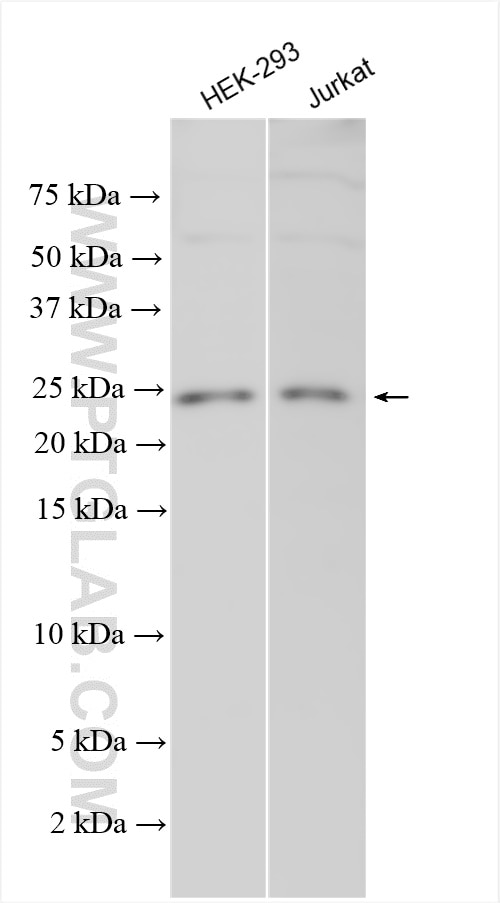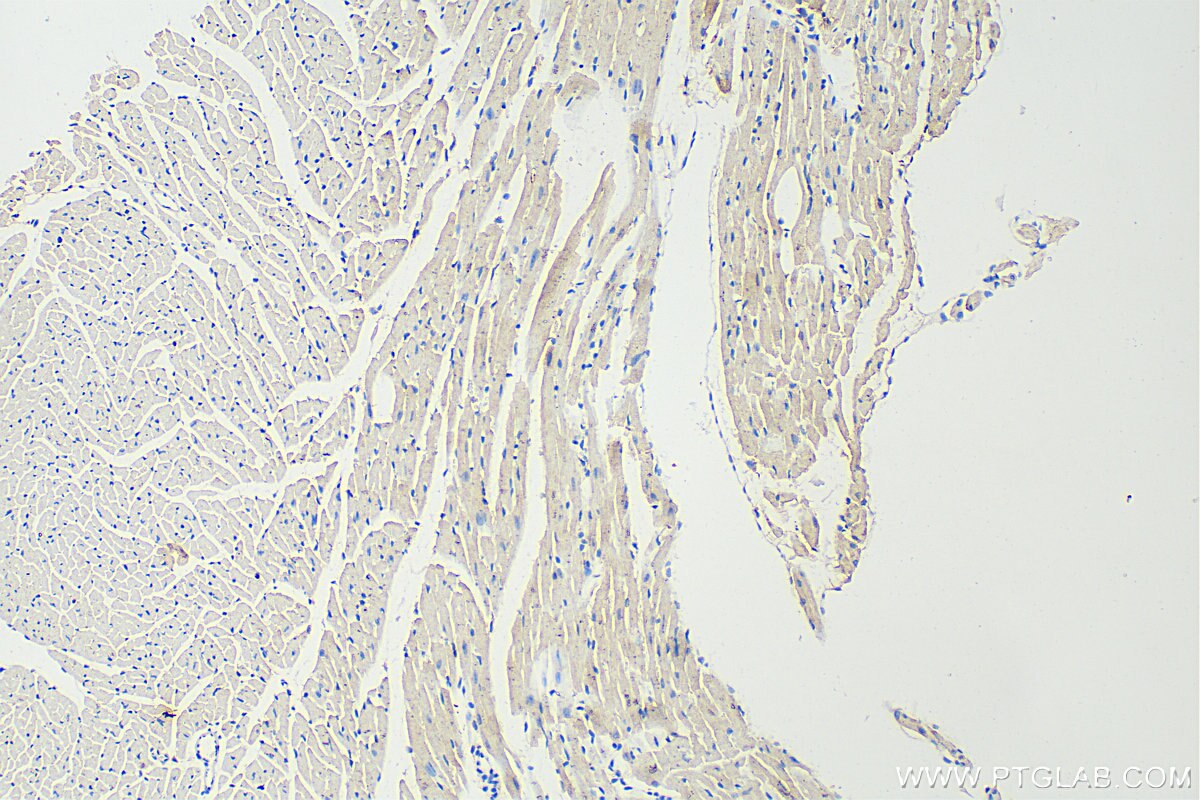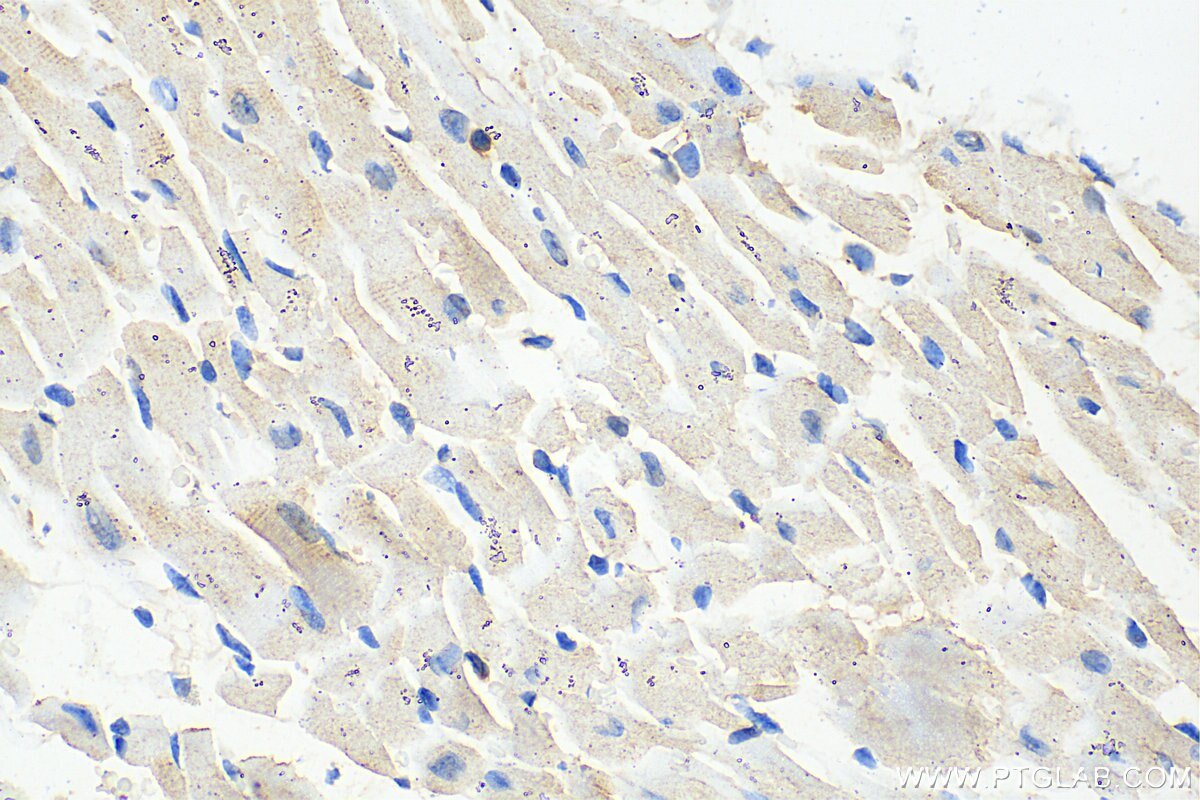Tested Applications
| Positive WB detected in | HEK-293 cells, Jurkat cells |
| Positive IHC detected in | mouse heart tissue Note: suggested antigen retrieval with TE buffer pH 9.0; (*) Alternatively, antigen retrieval may be performed with citrate buffer pH 6.0 |
Recommended dilution
| Application | Dilution |
|---|---|
| Western Blot (WB) | WB : 1:500-1:1000 |
| Immunohistochemistry (IHC) | IHC : 1:50-1:500 |
| It is recommended that this reagent should be titrated in each testing system to obtain optimal results. | |
| Sample-dependent, Check data in validation data gallery. | |
Product Information
27965-1-AP targets DHFRL1 in WB, IHC, ELISA applications and shows reactivity with Human, mouse samples.
| Tested Reactivity | Human, mouse |
| Host / Isotype | Rabbit / IgG |
| Class | Polyclonal |
| Type | Antibody |
| Immunogen | DHFRL1 fusion protein Ag10537 Predict reactive species |
| Full Name | dihydrofolate reductase-like 1 |
| Calculated Molecular Weight | 187 aa, 22 kDa |
| Observed Molecular Weight | 25 kDa |
| GenBank Accession Number | BC063379 |
| Gene Symbol | DHFRL1 |
| Gene ID (NCBI) | 200895 |
| RRID | AB_3086015 |
| Conjugate | Unconjugated |
| Form | Liquid |
| Purification Method | Antigen affinity purification |
| UNIPROT ID | Q86XF0 |
| Storage Buffer | PBS with 0.02% sodium azide and 50% glycerol, pH 7.3. |
| Storage Conditions | Store at -20°C. Stable for one year after shipment. Aliquoting is unnecessary for -20oC storage. 20ul sizes contain 0.1% BSA. |
Background Information
DHFRL1, also known as DHFR2, is a key enzyme in folate metabolism. DHFRL1 is a dihydrofolate reductase, that catalyzes the NADPH-dependent reduction of dihydrofolate to the biologically active form, tetrahydrofolate (PMID: 21876184).
Protocols
| Product Specific Protocols | |
|---|---|
| WB protocol for DHFRL1 antibody 27965-1-AP | Download protocol |
| IHC protocol for DHFRL1 antibody 27965-1-AP | Download protocol |
| Standard Protocols | |
|---|---|
| Click here to view our Standard Protocols |







